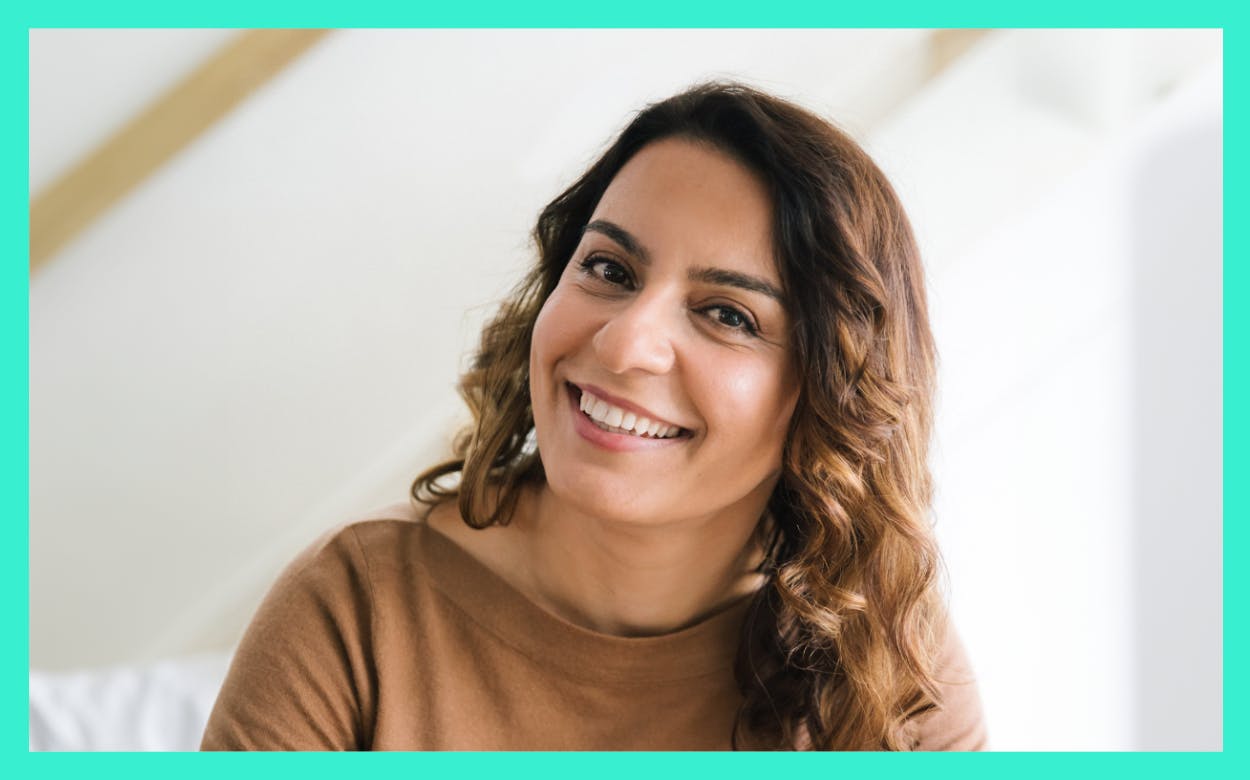Mandana Ahmadi (CEO and Founder, Alena)
Mandana has spent her career seeking a deep understanding of the human mind in order to protect and heal them. She has worked with the International Brain Laboratory, achieved her PhD in Computational Neuroscience from UCL Gatsby, and is the CEO and founder of Alena. A deep science mental health startup, Alena is automating the entire care pathway for supporting mental health conditions.

Can you explain your job to a five-year-old?
I help people live better, happier lives using science and technology. My team and I build digital medical devices that automate the entire pathway for mental health care for clinical conditions. This makes clinical help accessible and affordable to everybody regardless of where they live or who they are.
What excites you most about your job?
I have always cared for the comfort, happiness, and motivation of people around me. Contributing to people's sense of ownership in life and bringing them hope had the impact that people around me would live their lives in a way that made me hopeful about life and brought me joy. Being able to bring that to a global scale and giving everyone a chance to experience it is very exciting.
Which trend will change the future of medicine?
We are currently at a very critical stage of human history. There have been some events that did shape the course of humanity, such as the invention of money or the industrial revolution. We are now going through another one of such critical periods because of advances in artificial intelligence.
We see the impact of such technology already, from automatic translation between languages or lowering the bar in skillsets needed to do specialised jobs. This has happened despite us not yet having invented any machines that are truly intelligent. Regardless, we are moving in that direction, and there will come a day that most of the discoveries, assignments, and deliveries in the fields of health and medicine will be done by machines, providing humans with high quality services that give them time, space, and health to support each other with healthy human connection, something machines will never be able to offer.
Looking back, which trends have you missed or underestimated?
Electric cars. I always believed in it as a great idea (it has been around for nearly a century), but I also believed that society was not ready to embrace it and implement it. However, global warming and climate change—and persistence and outspokenness of some players in the field—accelerated implementation of that great technology.
Which medtech initiative or startup deserves more attention?
I’d like us to take a step back and ask ourselves: what kind of medtech initiative or startup deserves attention? My answer to that question is only the ones driven and vetted by science. Because of relatively loose regulations, there are many initiatives and startups that operate in the B2C space that are not scientifically sound, but use a language that makes them appear so. This means vulnerable people who are in need of help but don’t have expertise to vet solutions can fall prey. It is our duty to promote sound initiatives so they can stand out from the noise of story-driven initiatives.
Where would you put a million dollars?
Clearly, Alena. But if I had to choose another cause, it would be providing leadership education to children in underprivileged areas. As the future leaders of our society, how we educate our children today will ultimately shape tomorrow's world. While technology has made education more accessible, children in deprived areas still face significant barriers to believing in their potential to achieve great things. Therefore, investing in their leadership development is crucial to ensuring that they can unlock their full potential. Unfortunately, life's challenges often hinder them from developing the necessary skills and mindset. By empowering them to take control of their destiny, we can create a brighter future for everyone.
What's the best advice you've ever received?
A friend once gave me a valuable piece of advice: "Accept help from other people." As someone who grew up fiercely independent, I used to view asking for help as a sign of weakness. But my friend's straightforward words made me reflect on this belief. Since then, I've made a conscious effort to overcome my resistance to asking for and accepting help. While it can be scary to make ourselves vulnerable, seeking help from the right people can actually make us stronger. It reminds us of the important relationships we have in our lives and the support we're lucky to have. In doing so, we can learn to rely on others and build deeper connections, ultimately leading to a more fulfilling life.